Why I am Reformed. Nashville Summit, Country Music, and Bubu
There is not a square inch in the whole domain of our human existence over which Christ, who is Sovereign over all, does not cry, Mine!
You inquired so honestly about why I am committed to a Reformed vision of life that I am compelled to give you at least a brief overview.
First, it’s important to note that I am Reformed in the catholic sense. By catholic, I mean that I have a high regard for other traditions within the Protestant world. I can join many other traditions in pursuing the good. Further, while I am committed to the dogma of the 16th-century Protestant Reformation, I deny that the 16th-century Reformation was the end of reformations. I believe the Church grows as she builds her history. In other words, she is not paralyzed by history. And finally, my catholicity extends within my own Reformed tradition. I long to worship with Bucer and Spurgeon, Sproul and MacArthur.
Nevertheless, even when I disagree with my forefathers, I don’t do it flippantly but with tremendous respect and caution. They were loyal to the Scriptures, and when I disagreed with their interpretation, I prayed for humility as much as possible.
Second, I am compelled by the Reformed faith because it exalts God to the highest honor. Of course, other traditions exalt God, but Reformed theology places God as the center of all thinking, living, doing, and abiding. God is the precondition of all knowledge. In a culture so heavily invested in the wants and desires of men, the Reformed tradition places the glory of God above all earthly glories. As Calvin notes, “we are consecrated and dedicated to God in order that we may thereafter think, speak, meditate, and do nothing except to his glory”.
Third, and perhaps one of the central aspects that drew me to the theology of Calvin, Luther, and Bucer was their immense love for the Holy Bible. The Bible was, for them, the central and primary authority over all matters of faith and practice. Instead of relying on methods that excuse or draw us away from the text, Reformed theology is unapologetically biblical. God is, and therefore, everything flows from that presupposition. As Luther so eloquently stated:
We are like men who study sign-posts and never travel the road; the dear fathers wished by their writing to lead us to the Scriptures, but we use them as to be led away from the Scriptures, though the Scriptures alone are our vineyard in which we ought all to work and toil.
Fourth, and I owe this mainly to Martin Luther, but what draws me more and more daily to the Reformed faith is its principle that when you sing, you pray twice (Augustine). Luther believed the congregation must be committed to singing God’s words and sound theology. I still recall my first experience in a Reformed church and singing:
His kingdom cannot fail;
He rules o’er earth and heav’n.
The keys of death and hell
To Christ the Lord are giv’n.
I've never heard such piercing, powerful lyrics. For the Reformed, the congregation is the choir. For the Reformed, instruments may serve as a guide, but never as a rule. The rule is the voice of the saint joined with others in psalms, hymns, and spiritual songs.
Finally, I am Reformed because of Abraham Kuyper’s mission to apply the Christian faith to every sphere of life. Calvinism was never intended to be isolated from life. He once wrote:
There is not a square inch in the whole domain of our human existence over which Christ, who is Sovereign over all, does not cry, Mine!
For the Reformed, to be a Christian is not just a state of being but a verb. A Christian christianizes. He brings the joys of heaven to everything he touches on earth. He learns and hears so he may apply. He is a light unto the nations.
If I had more time, I’d talk about how the Reformation renewed a true vision of the Church, but I think my outline above should suffice. Again, thanks for your question, and I look forward to your feedback.
Yours Truly,
Pastor Uriesou Brito
Nuntium
Nashville Summit, 2025 & Grand Ole Opry
I returned a couple of days ago from Nashville, TN, where I met with all our delegates for Council. The meeting was fruitful and God blessed our gathering in innumerable ways. The summit provided an opportunity to meet face-to-face, renew our affection for the work of the CREC, and discuss, in an informal setting, the work of each presbytery. We are now less than one year away from Council.
Among the many blessings was spending time with my two good friends, Randy Booth and Joshua Appel. Country Artist and Musician par excellence, Cade Foehner, was kind enough to provide us with some tickets to visit the Grand Ole Opry. While the contemporary country scene is not my thing, I confess the Opry was quite a magical place. My kids seemed mighty impressed with the line-up, and that’s always a happy dad-merit added to the treasury.
Hus Presiding Minister
It was great to host the Presiding Minister of Hus Presbytery, Dr. Bogumil Jarmulak, here in Pensacola for a day. Bubu and I have been together in Canada, Oregon, Tennessee, Washington, and now in my hometown. This dear brother plays a significant role in CREC's work in Eastern Europe, including war-torn Ukraine, where we have several of our congregations. His tireless work on behalf of the CREC continues to bear good fruit.


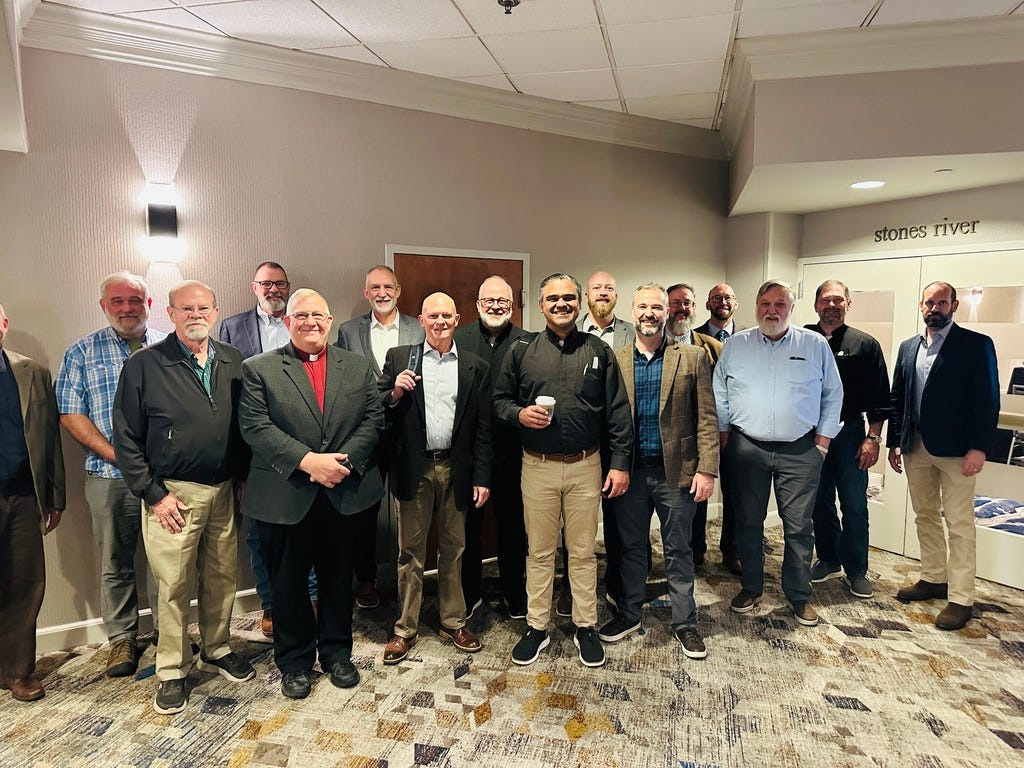
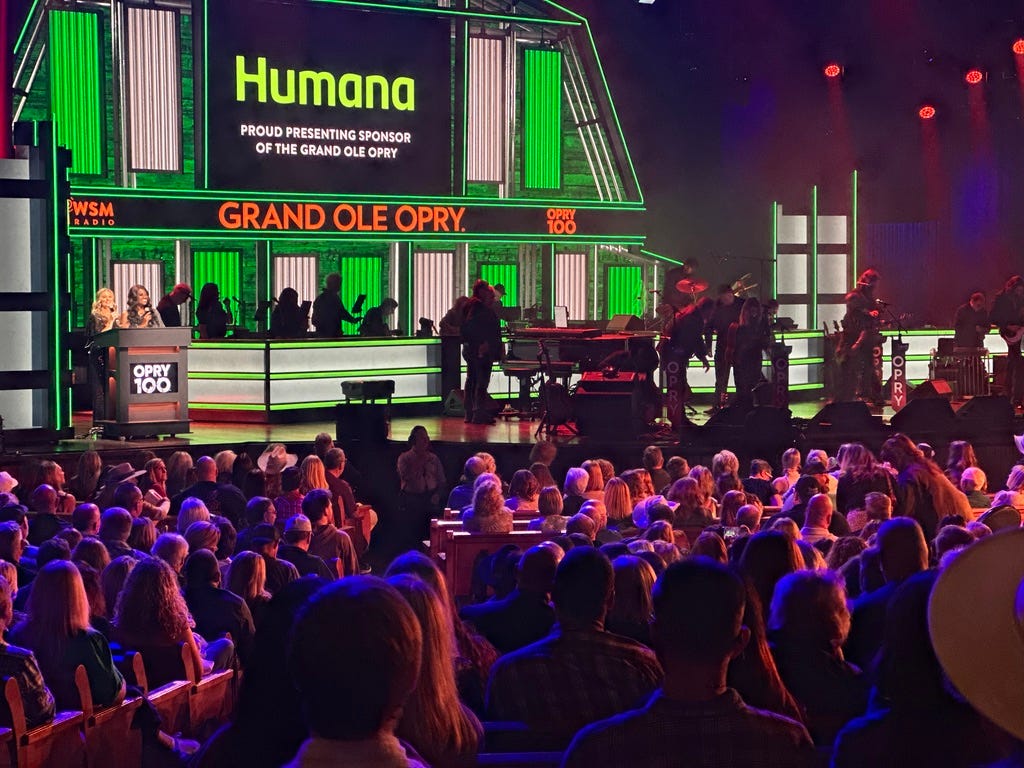
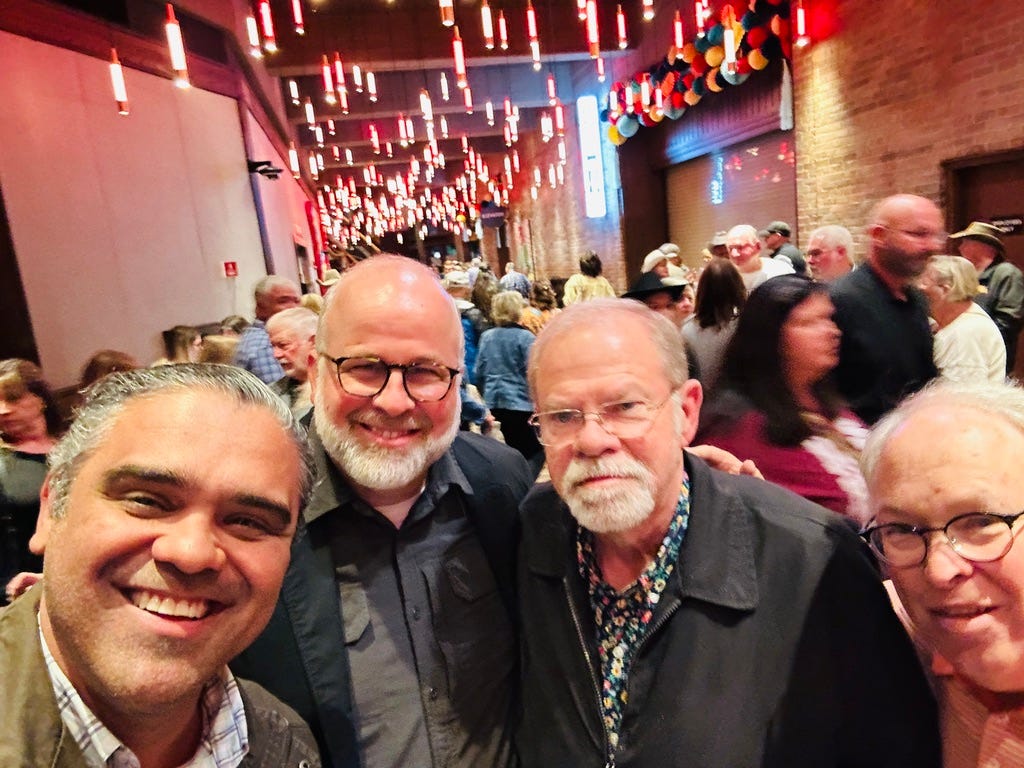
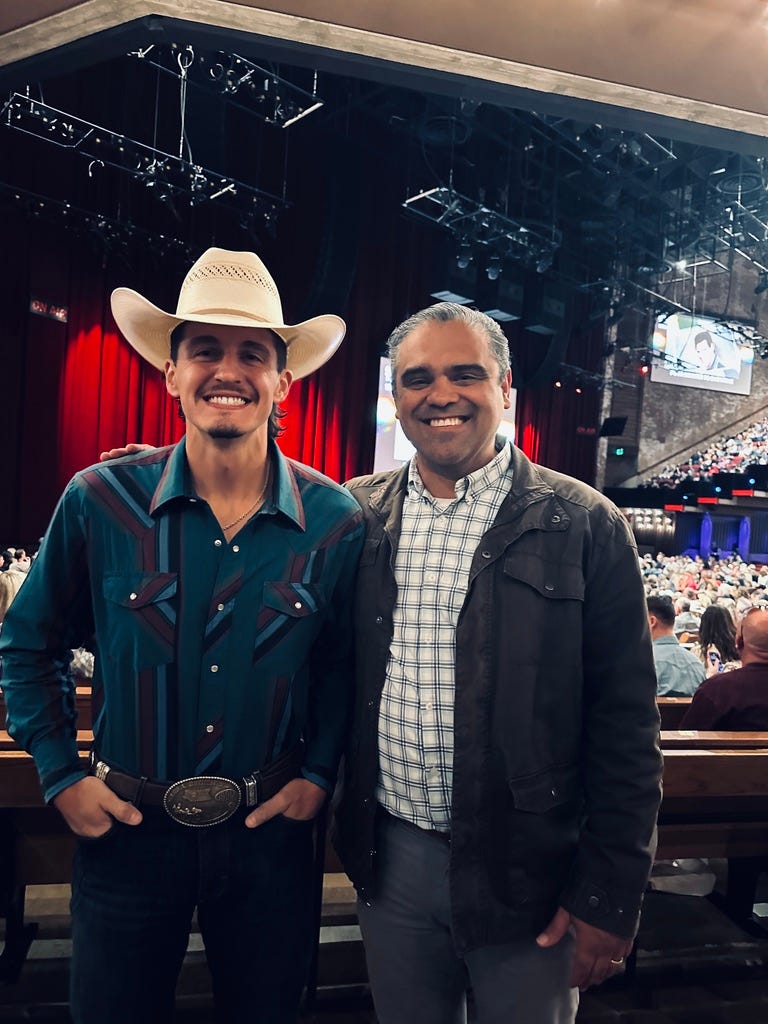
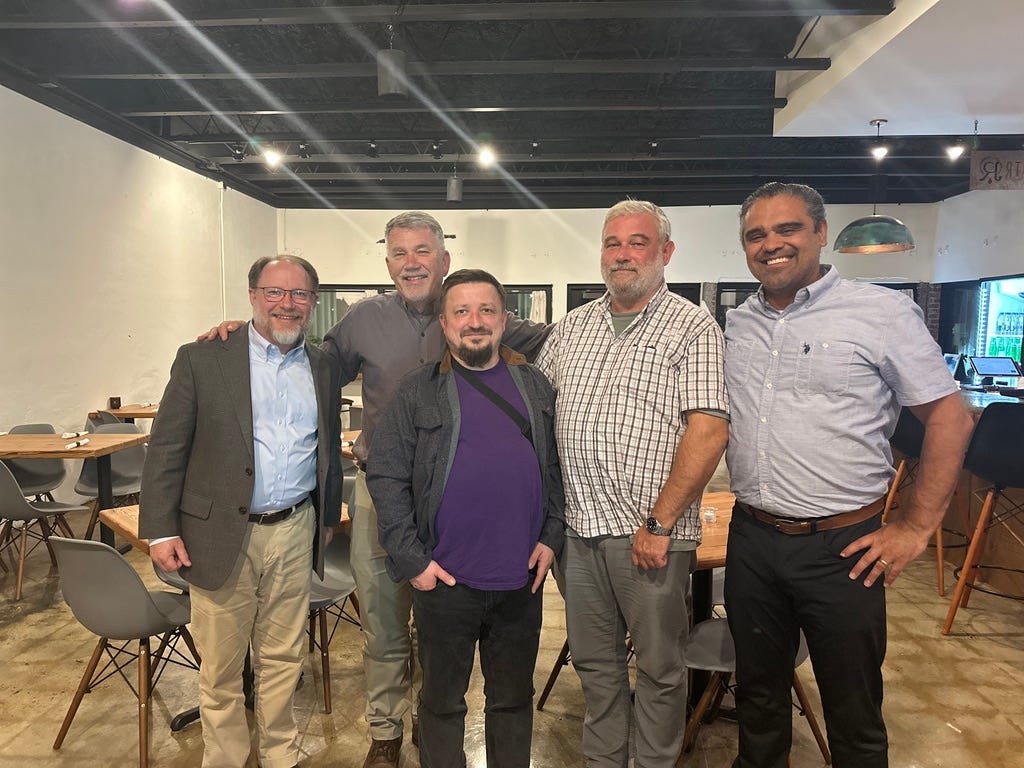
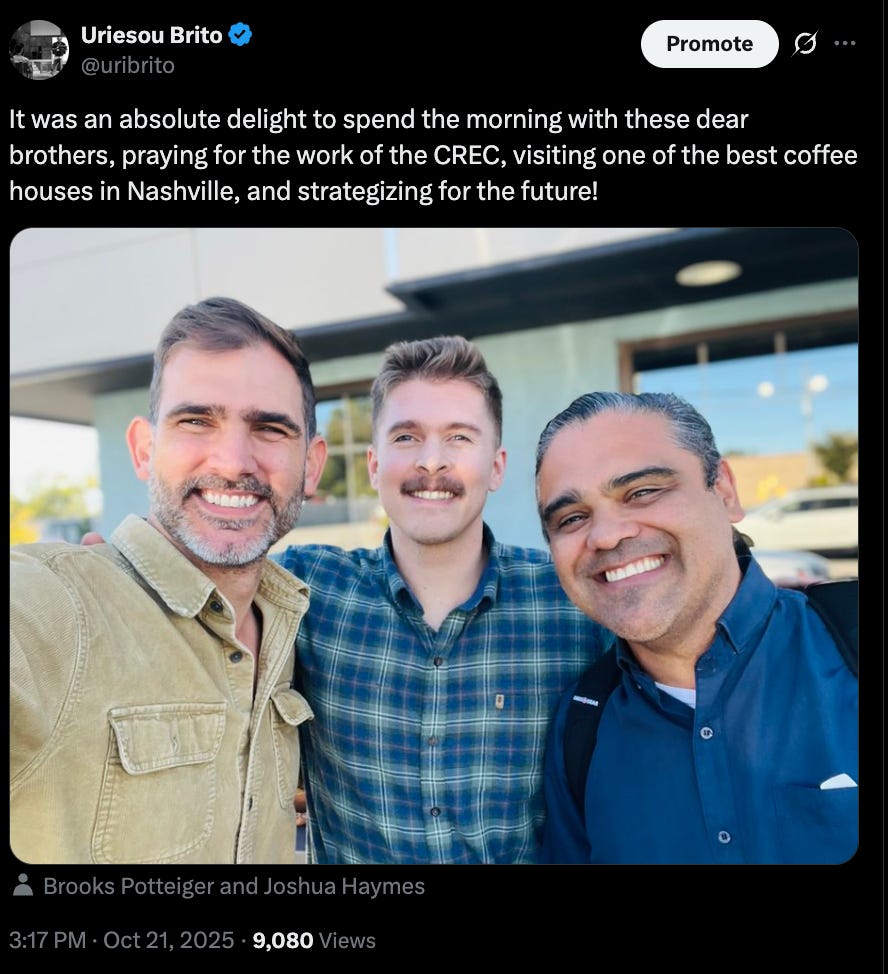
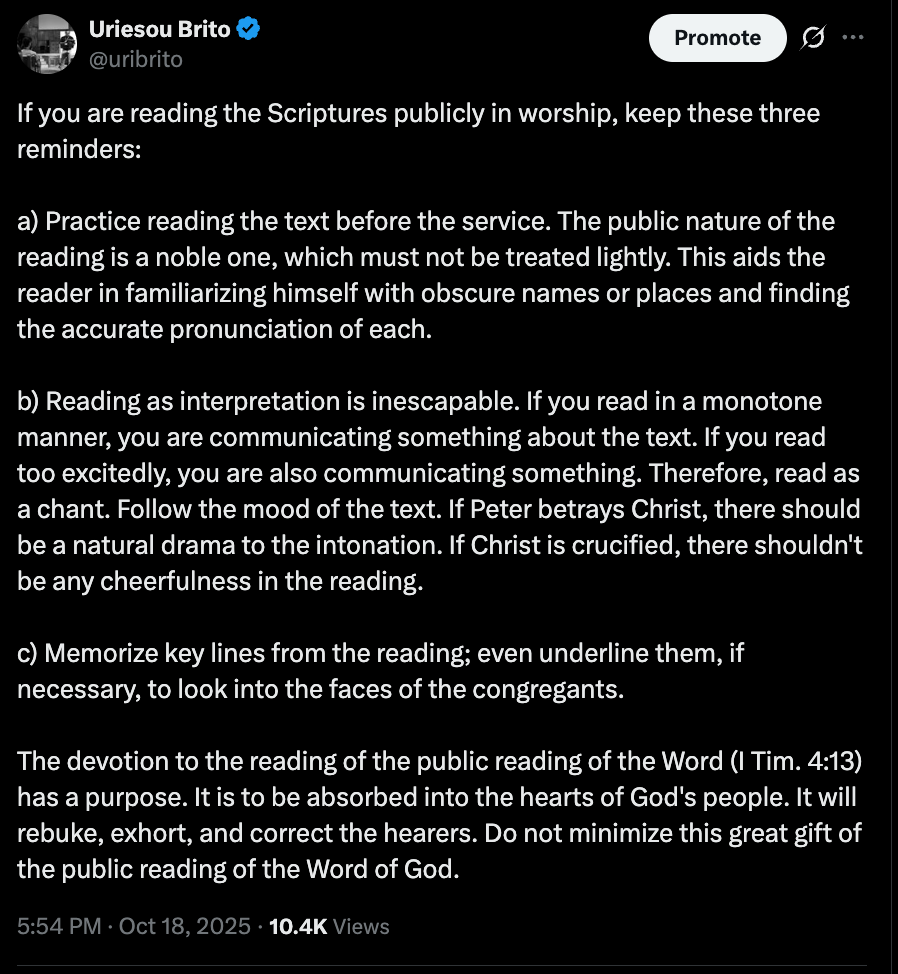
This summary ministered to my heart. Thank you.